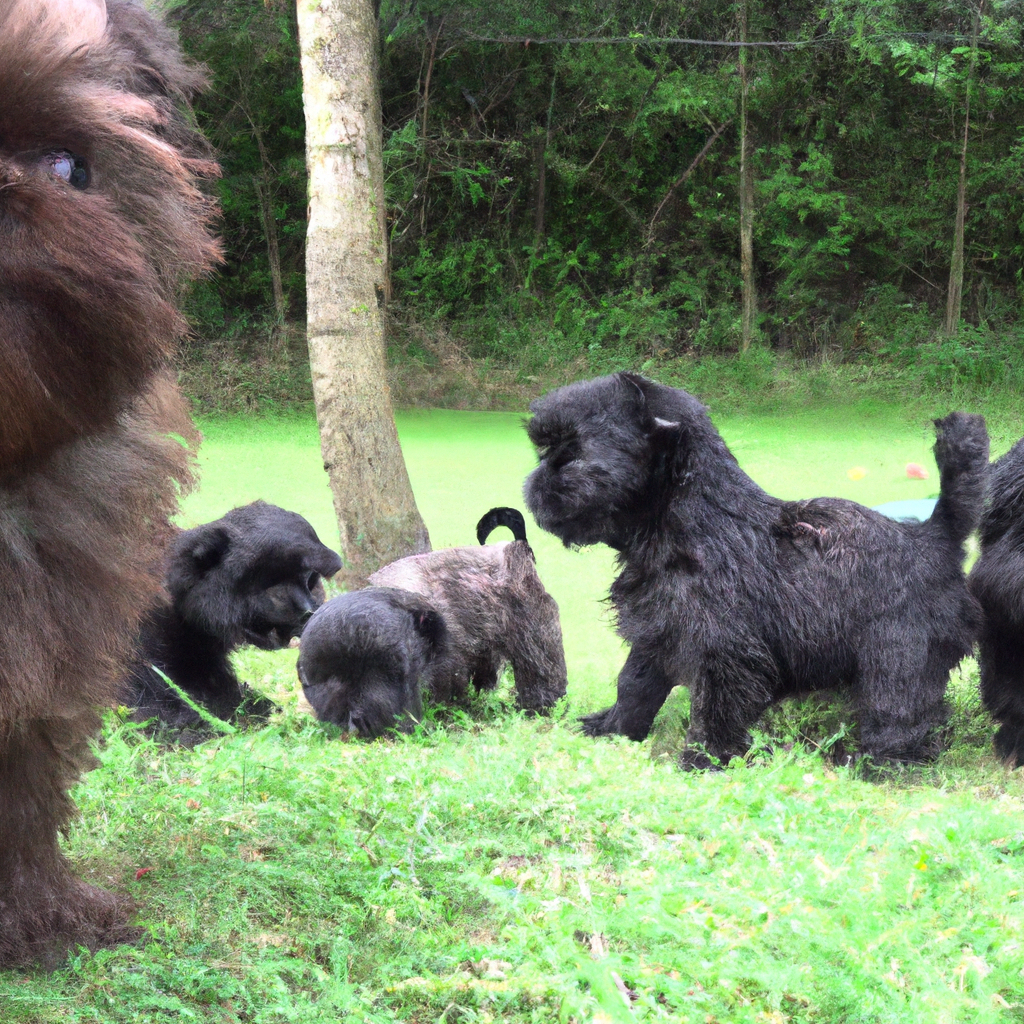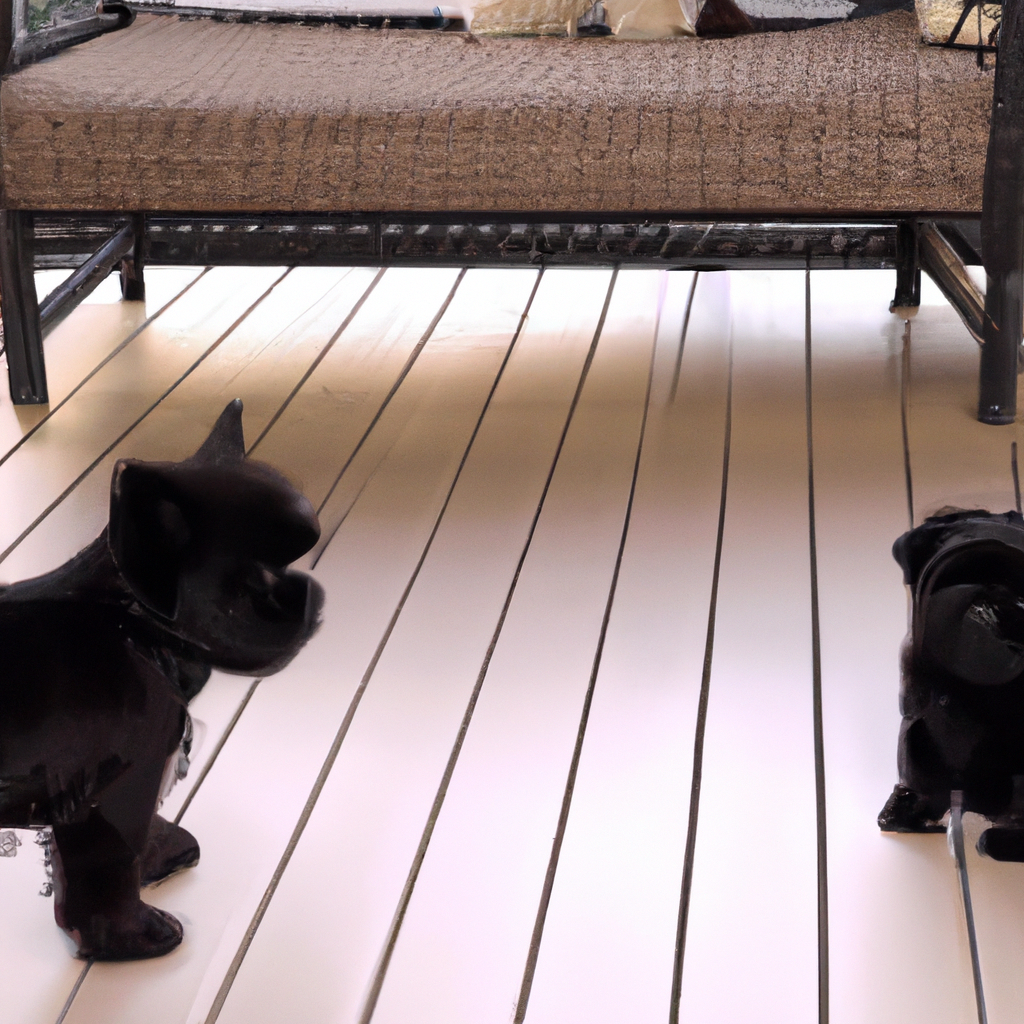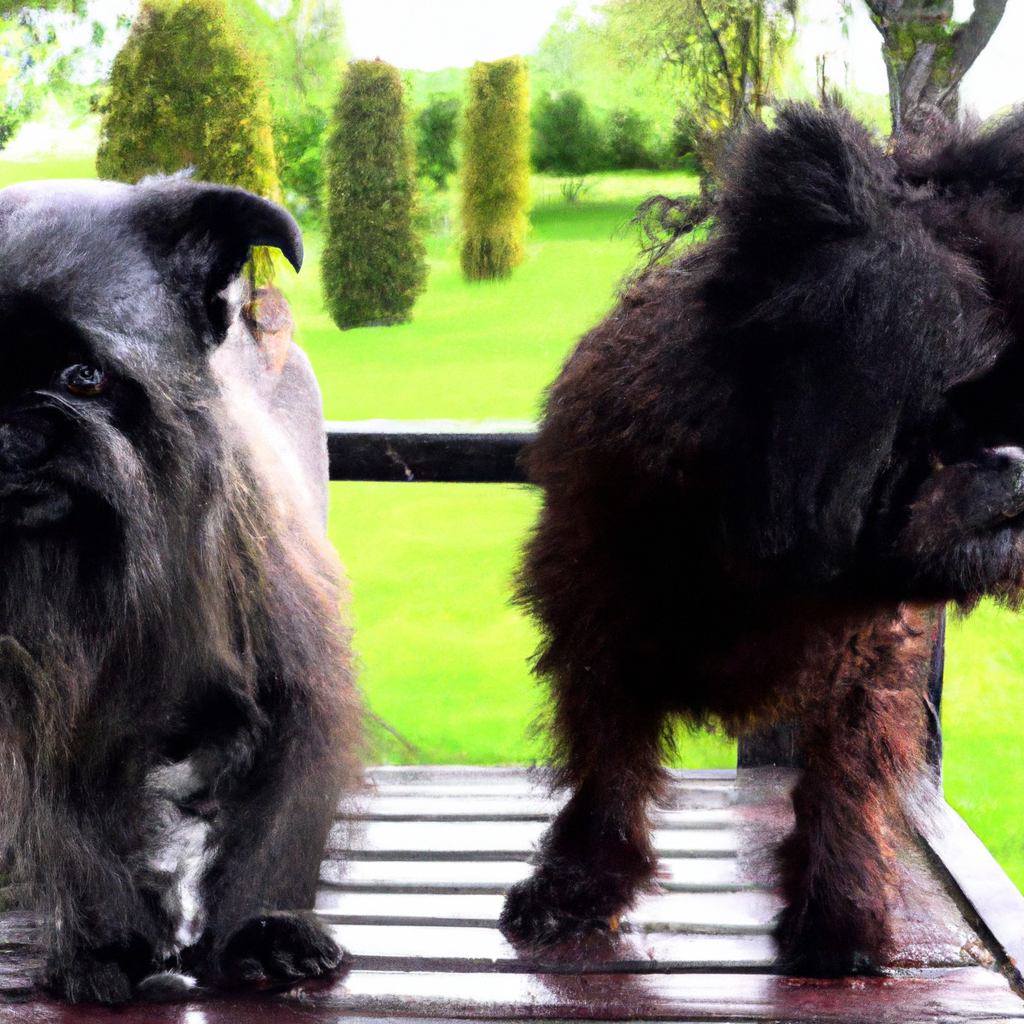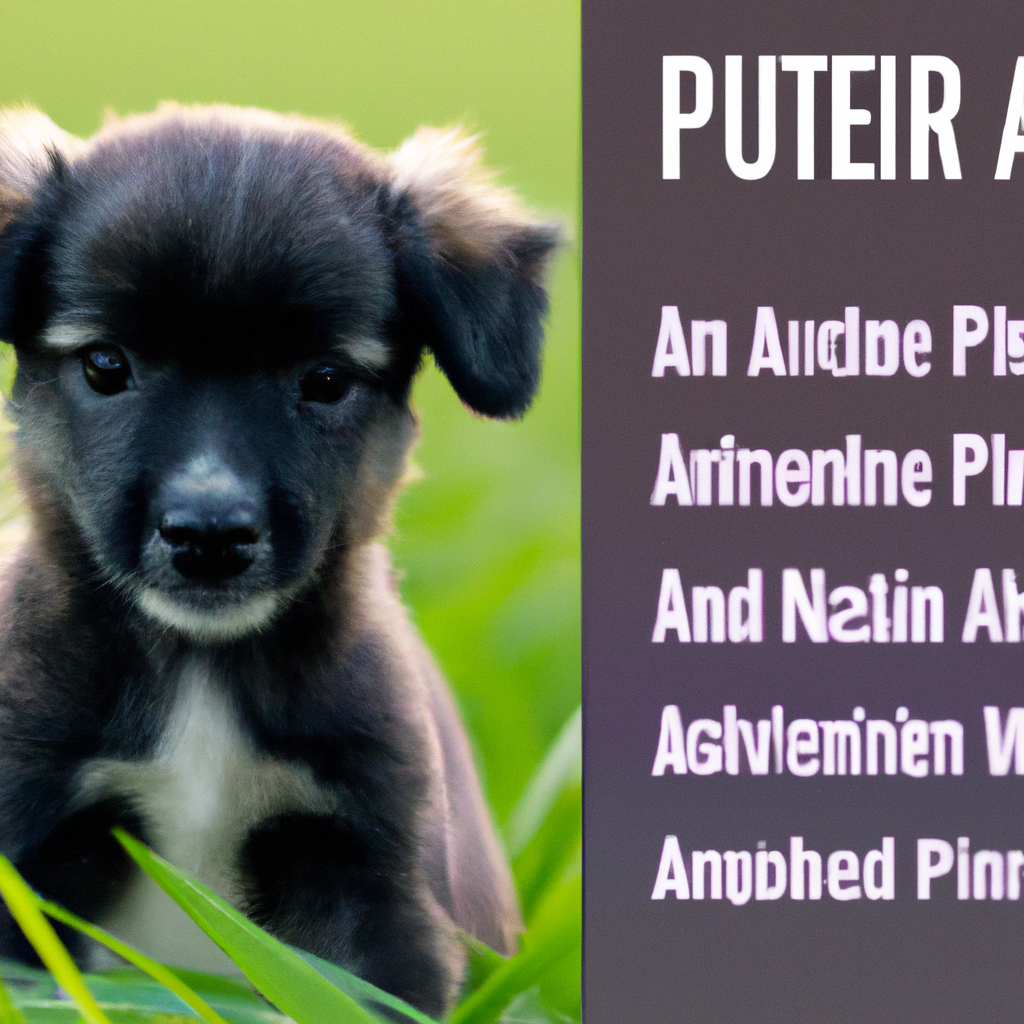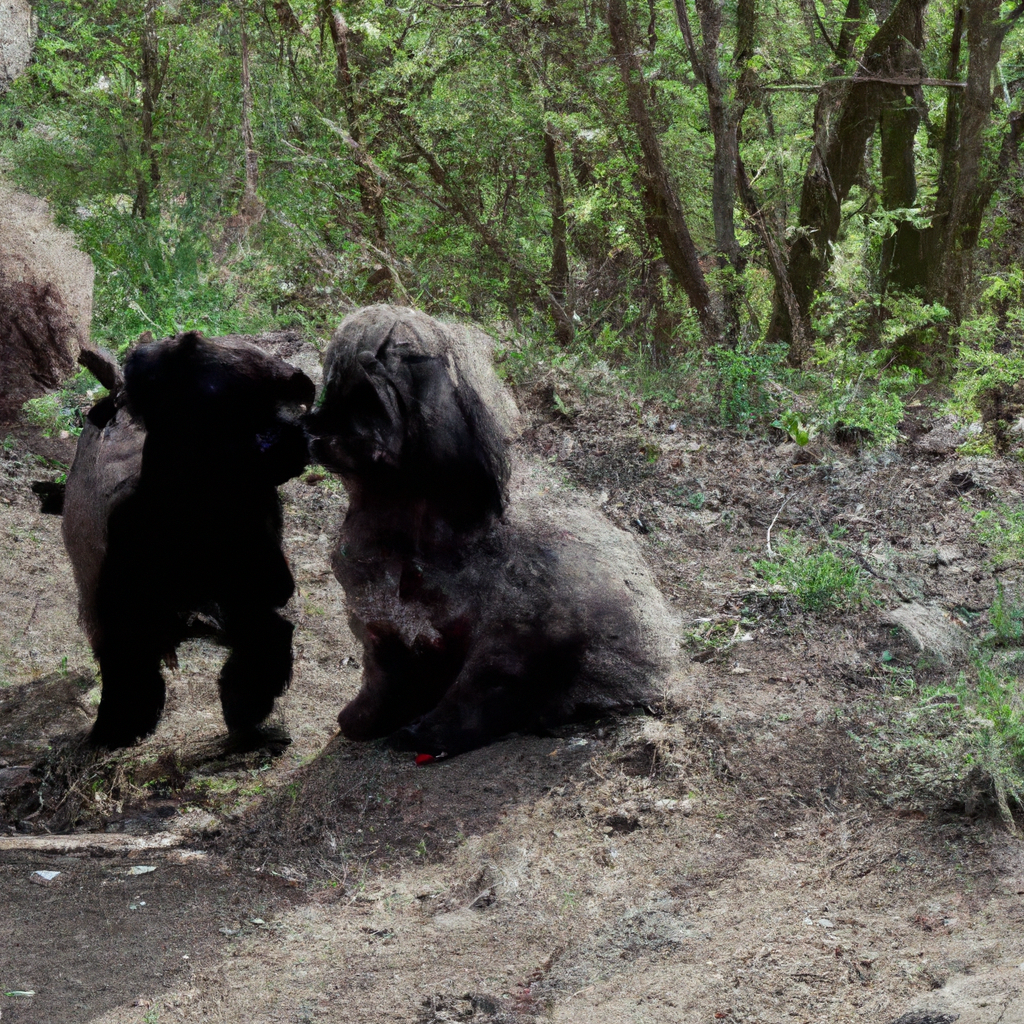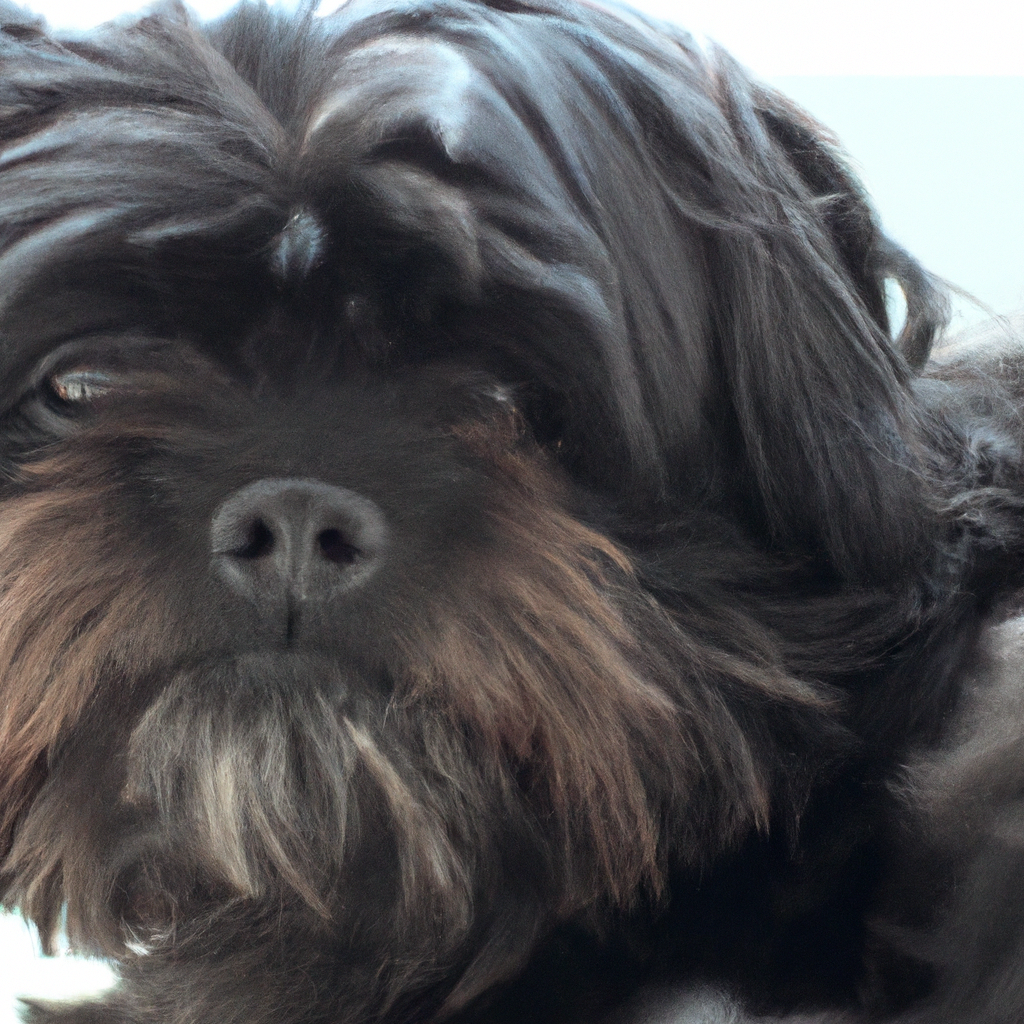Raising Affenpinscher puppies versus adults presents a unique set of challenges that potential owners should be aware of. Affenpinscher puppies, like all puppies, require a significant amount of time, patience, and training. They are energetic, curious, and can be quite mischievous, which can lead to destructive behavior if not properly managed. On the other hand, adult Affenpinschers, while generally more settled and less destructive, may come with their own set of issues. These can include pre-existing behavioral problems, health issues, or difficulties in adapting to a new environment. Both stages of life have their own rewards and difficulties, and understanding these challenges is crucial for anyone considering bringing an Affenpinscher into their home.
Understanding the Behavioral Differences: Affenpinscher Puppies vs Adults
Raising an Affenpinscher, whether a puppy or an adult, can be a rewarding experience. However, it’s important to understand that each stage of their life comes with its own unique set of challenges. The Affenpinscher, also known as the “Monkey Terrier” due to its playful and mischievous nature, is a small breed that is full of energy and personality. But don’t let their small size fool you; these dogs require a lot of attention and care.
When it comes to raising Affenpinscher puppies, one of the biggest challenges is their high energy levels. These little furballs are full of life and love to play. This means they require a lot of exercise and mental stimulation to keep them happy and healthy. Without it, they can become bored and destructive. Puppies also need to be socialized from a young age to ensure they grow up to be well-rounded dogs. This involves exposing them to a variety of people, environments, and other animals.
Another challenge with Affenpinscher puppies is their stubbornness. They are known for their independent nature, which can make training a bit of a challenge. Consistency and patience are key when training these puppies. It’s also important to start training them from a young age to ensure they develop good habits.
On the other hand, raising an adult Affenpinscher comes with its own set of challenges. One of the biggest is dealing with any behavioral issues that may have developed earlier in their life. This could include things like aggression, separation anxiety, or fearfulness. It’s important to remember that these behaviors are often a result of past experiences, and it can take time and patience to help your dog overcome them.
Adult Affenpinschers may also be set in their ways, which can make training more difficult. They may be resistant to change and new routines, which can be a challenge if you’re trying to introduce new behaviors or break bad habits. However, with consistency and positive reinforcement, it’s possible to train an adult Affenpinscher.
Another challenge with adult Affenpinschers is their health. As they age, they may develop health issues that require special care and attention. This could include things like dental problems, heart disease, or arthritis. Regular vet check-ups are essential to catch any potential health issues early and ensure your dog is getting the care they need.
In conclusion, whether you’re raising an Affenpinscher puppy or an adult, it’s important to understand the unique challenges that each stage of their life presents. Puppies require a lot of exercise, socialization, and training, while adults may have behavioral issues or health concerns that need to be addressed. However, with patience, consistency, and a lot of love, raising an Affenpinscher can be a rewarding experience. Remember, every dog is unique and will have its own set of needs and challenges. It’s all about understanding these needs and providing the best care possible for your furry friend.
Training Challenges: Affenpinscher Puppies Compared to Adults
Raising an Affenpinscher, whether a puppy or an adult, can be a rewarding experience. However, it’s not without its challenges. These small, energetic dogs are known for their playful and sometimes stubborn nature, which can make training a bit of a hurdle. Understanding the unique challenges of raising Affenpinscher puppies versus adults can help you better prepare for this exciting journey.
Affenpinscher puppies are adorable, but they’re also a handful. Their boundless energy and curiosity can lead to all sorts of mischief. Training a puppy requires a lot of patience and consistency. Puppies have short attention spans, so training sessions should be short and frequent. Positive reinforcement is key with these little ones. They respond well to treats and praise, but harsh punishment can lead to fear and anxiety.
One of the biggest challenges with Affenpinscher puppies is house training. These puppies are small, and so are their bladders. This means frequent trips outside and plenty of accidents in the house. Crate training can be a useful tool in house training, but it must be done with care. Affenpinschers are known to be a bit stubborn, so forcing them into a crate can lead to resistance and fear.
Socialization is another important aspect of raising an Affenpinscher puppy. These dogs can be a bit wary of strangers and other dogs, so early socialization is crucial. This means exposing your puppy to a variety of people, places, and situations to help them become well-adjusted adults.
On the other hand, raising an adult Affenpinscher comes with its own set of challenges. Adult dogs may come with some behavioral issues or bad habits that need to be addressed. Training an adult dog requires a different approach than training a puppy. Adults have longer attention spans, so training sessions can be longer and more intense. However, they may also be more set in their ways, making it harder to break bad habits.
Adult Affenpinschers may also have issues with socialization. If they weren’t properly socialized as puppies, they might be wary or aggressive towards strangers and other dogs. This can make outings and trips to the vet a challenge. However, with patience and consistent training, these issues can be addressed.
One advantage of raising an adult Affenpinscher is that they are usually house trained. This can save you a lot of time and frustration. However, if the dog was not properly house trained, or if they have developed bad habits, you may need to go back to basics.
In conclusion, raising an Affenpinscher, whether a puppy or an adult, comes with its own unique challenges. Puppies require a lot of patience and consistency, especially when it comes to house training and socialization. Adults, on the other hand, may come with some behavioral issues or bad habits that need to be addressed. However, with patience, consistency, and a lot of love, these challenges can be overcome. Regardless of their age, raising an Affenpinscher is a rewarding experience that brings a lot of joy and laughter into your life.
Health Concerns in Raising Affenpinscher Puppies vs Adults
Raising an Affenpinscher, whether a puppy or an adult, can be a rewarding experience. These small, scruffy dogs, often referred to as “monkey dogs” due to their primate-like appearance, are known for their playful and adventurous spirit. However, like any breed, Affenpinschers come with their own unique set of health concerns that potential owners should be aware of.
When it comes to Affenpinscher puppies, one of the primary health concerns is their susceptibility to certain genetic conditions. Hip dysplasia, a condition where the hip joint doesn’t develop properly, is one such concern. This can lead to pain and mobility issues later in life. Similarly, puppies can also be prone to a condition called patellar luxation, where the kneecap dislocates or moves out of its normal location. Early detection and treatment can help manage these conditions, so regular vet check-ups are crucial.
Another concern with Affenpinscher puppies is their small size. Weighing just 7-9 pounds when fully grown, these dogs are tiny even as puppies. This makes them more susceptible to injuries from falls or rough play. Owners should be careful to supervise their Affenpinscher puppies, especially when they’re around larger dogs or young children.
Transitioning to adult Affenpinschers, the health concerns shift somewhat. As these dogs age, they become more prone to certain health issues. Heart disease, particularly a condition called mitral valve disease, can be a concern. This condition causes the heart’s mitral valve to degrade, leading to a decrease in the efficiency of the heart’s blood flow. Regular vet check-ups can help catch this condition early, and medication can help manage it.
Another common health issue in adult Affenpinschers is dental disease. These dogs have small mouths and crowded teeth, making them prone to dental issues like gum disease and tooth decay. Regular dental cleanings and a good dental hygiene routine at home can help prevent these problems.
Eye problems are also a common concern in adult Affenpinschers. Progressive Retinal Atrophy (PRA), a degenerative eye disorder that eventually leads to blindness, is particularly common in the breed. Regular eye exams can help catch this condition early, and while there’s no cure, there are treatments that can slow its progression.
Despite these health concerns, it’s important to remember that every Affenpinscher is unique. Not every dog will develop these conditions, and many live long, healthy lives with the right care and attention. Regular vet visits, a balanced diet, and plenty of exercise can go a long way in keeping your Affenpinscher healthy, whether they’re a puppy or an adult.
In conclusion, while raising an Affenpinscher, whether a puppy or an adult, comes with its own set of health concerns, these can be managed with regular vet check-ups and a proactive approach to their health. These small, playful dogs can make wonderful companions, and with the right care, they can be a part of your family for many years to come.
The Financial Implications of Raising Affenpinscher Puppies vs Adults
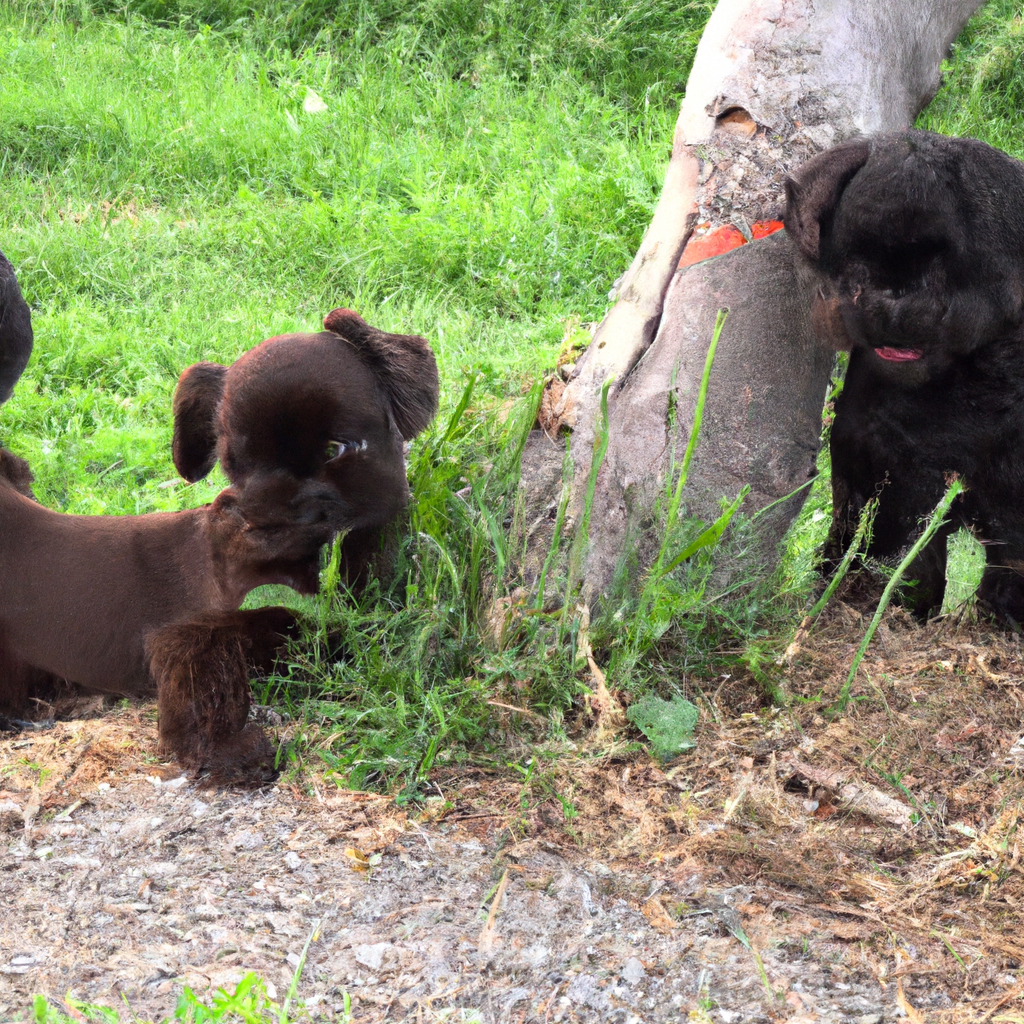
Raising an Affenpinscher, whether a puppy or an adult, is a rewarding experience filled with joy, companionship, and a few challenges. One of the most significant considerations when deciding between a puppy and an adult is the financial implications. It’s essential to understand the costs associated with each stage of an Affenpinscher’s life to make an informed decision.
Starting with Affenpinscher puppies, they are undeniably adorable, but they come with their own set of financial responsibilities. Initially, the purchase price for a puppy can be higher than that of an adult dog, especially if you’re buying from a reputable breeder. Then, there are the costs of vaccinations, deworming, and other initial veterinary care. Puppies require several rounds of vaccinations in their first year, which can add up.
In addition to medical expenses, puppies also require a significant investment in supplies. You’ll need to purchase items like a crate, bedding, toys, and puppy-specific food. Training is another cost to consider. While it’s possible to train a puppy yourself, many people opt for professional training classes, which can be quite costly.
Moreover, puppies are known for their boundless energy and curiosity, which can sometimes lead to accidents. Whether it’s a chewed-up shoe or a broken vase, these unexpected costs can add up quickly. Plus, if your puppy’s antics lead to an injury, you could be facing additional veterinary bills.
On the other hand, adopting an adult Affenpinscher can also have its own financial implications. While the initial cost may be lower, adult dogs can come with their own set of health issues. For instance, dental problems are common in adult dogs and can lead to expensive treatments. Similarly, as dogs age, they may develop chronic conditions that require ongoing medication or special diets, both of which can be costly.
Adult dogs may also require more grooming than puppies. Affenpinschers have a rough, shaggy coat that requires regular brushing to prevent matting. While you can certainly groom your dog at home, many people prefer to use professional grooming services, which can be an added expense.
However, it’s worth noting that adult dogs often come with some training, which can save you both time and money. They’re also typically less destructive than puppies, which can save you from unexpected costs related to damaged items.
In conclusion, both Affenpinscher puppies and adults come with their own unique financial challenges. Puppies often require more upfront costs for vaccinations, supplies, and training, while adults may come with higher ongoing costs related to health care and grooming. It’s important to consider these factors and your own financial situation when deciding whether to adopt a puppy or an adult Affenpinscher.
Remember, owning a pet is a long-term commitment that goes beyond the initial purchase price. Whether you choose a puppy or an adult Affenpinscher, the love and companionship they provide are priceless. However, understanding the financial implications can help ensure that you’re prepared for the responsibility and can provide the best possible care for your new furry friend.
Socialization Struggles: Affenpinscher Puppies vs Adults
Raising an Affenpinscher, whether a puppy or an adult, can be a rewarding experience. However, it’s not without its challenges, especially when it comes to socialization. Affenpinschers, also known as “Monkey Terriers,” are small but feisty dogs known for their distinctive, scruffy appearance and their lively, confident personalities. They’re intelligent, curious, and fiercely loyal, making them excellent companions. But their strong-willed nature can also make socialization a bit of a struggle.
When you bring home an Affenpinscher puppy, one of the first challenges you’ll face is socialization. Puppies are like sponges, soaking up experiences and learning about the world around them. This is the perfect time to introduce them to a variety of people, animals, and environments. However, Affenpinscher puppies can be a bit stubborn. They’re not always keen on meeting new people or animals, and they can be wary of unfamiliar environments. This can make socialization a bit of a challenge.
To overcome this, it’s important to start socialization early and to do it often. Introduce your Affenpinscher puppy to new experiences in a positive, controlled way. Use treats and praise to reward them for calm, confident behavior. Be patient and persistent. It may take time, but with consistent effort, your Affenpinscher puppy can learn to be comfortable and confident in a variety of situations.
On the other hand, socializing an adult Affenpinscher can present a different set of challenges. Adult dogs, especially those who haven’t been properly socialized as puppies, can be set in their ways. They may be wary of new people and animals, and they may be uncomfortable in unfamiliar environments. This can make socialization a bit of a struggle.
However, it’s not impossible to socialize an adult Affenpinscher. It just requires a bit more patience and persistence. Start by introducing your Affenpinscher to new experiences slowly and gradually. Use positive reinforcement to reward them for calm, confident behavior. Be patient and persistent. It may take time, but with consistent effort, your adult Affenpinscher can learn to be comfortable and confident in a variety of situations.
One thing to keep in mind when socializing an Affenpinscher, whether a puppy or an adult, is their small size. Affenpinschers are small dogs, and they can be easily overwhelmed by larger dogs or boisterous play. Be sure to supervise interactions with other dogs, especially larger ones, to ensure that your Affenpinscher feels safe and comfortable.
In conclusion, while socializing an Affenpinscher, whether a puppy or an adult, can be a challenge, it’s not impossible. With patience, persistence, and positive reinforcement, you can help your Affenpinscher become a confident, well-socialized dog. And the rewards – a loyal, loving, and confident companion – are well worth the effort. So whether you’re bringing home a feisty Affenpinscher puppy or a stubborn adult, remember: socialization is key. And with a little effort, you can help your Affenpinscher thrive in any situation.
The Challenge of Diet and Nutrition: Affenpinscher Puppies vs Adults
Raising an Affenpinscher, whether a puppy or an adult, can be a rewarding experience. These small, energetic dogs are known for their playful nature and distinctive appearance. However, one of the most significant challenges that Affenpinscher owners face is ensuring their pet’s diet and nutrition are properly managed. This challenge can vary significantly depending on whether you’re raising a puppy or an adult Affenpinscher.
When it comes to Affenpinscher puppies, their diet and nutrition needs are quite different from those of an adult. Puppies are growing rapidly, and their bodies require a higher calorie intake to support this growth. They also need a balanced diet that includes the right amounts of protein, fats, and carbohydrates. Protein is particularly important for puppies as it supports the development of their muscles and tissues.
Feeding an Affenpinscher puppy can be a bit of a balancing act. On one hand, you want to ensure they’re getting enough nutrients to support their growth. On the other hand, you don’t want to overfeed them, as this can lead to obesity and other health problems later in life. It’s also important to remember that puppies have smaller stomachs than adults, so they need to eat smaller, more frequent meals throughout the day.
Transitioning to the diet and nutritional needs of an adult Affenpinscher, the focus shifts from supporting growth to maintaining health. Adult Affenpinschers still need a balanced diet, but their calorie intake should be lower than that of a puppy. They also need a good balance of protein, fats, and carbohydrates, but in different proportions.
Adult Affenpinschers are prone to certain health issues, such as hip dysplasia and heart problems, which can be exacerbated by an improper diet. For instance, too much fat in their diet can lead to obesity, which puts extra strain on their joints and heart. Therefore, it’s crucial to monitor their weight and adjust their diet accordingly.
Another challenge with adult Affenpinschers is that they can be picky eaters. They may turn their noses up at certain foods, making it difficult to ensure they’re getting a balanced diet. One way to combat this is by offering a variety of healthy foods and rotating them regularly to keep your pet interested.
In both cases, whether raising a puppy or an adult Affenpinscher, it’s important to consult with a vet or a pet nutritionist. They can provide guidance on the best diet for your pet’s age, size, and health status. They can also help you understand the nutritional content of different pet foods and how to read pet food labels.
In conclusion, while the challenges of raising Affenpinscher puppies and adults differ, they both center around ensuring a balanced diet and proper nutrition. With careful attention to their dietary needs and regular consultations with a vet or pet nutritionist, you can help your Affenpinscher thrive at any age.
Exercise Requirements: Differences between Affenpinscher Puppies and Adults
Raising an Affenpinscher, whether a puppy or an adult, is a rewarding experience filled with joy, laughter, and a few challenges. One of the most significant differences between raising a puppy and an adult Affenpinscher lies in their exercise requirements. Understanding these differences is crucial to ensure your furry friend stays healthy and happy.
Affenpinscher puppies are bundles of energy. They are curious, playful, and always ready for a game or a romp around the yard. Their exercise needs are high, and they require regular playtime and walks to burn off their energy. However, it’s important to remember that their little bodies are still growing. Over-exercising a puppy can lead to joint and bone problems later in life. Therefore, it’s recommended to keep their exercise sessions short but frequent. A few 15-minute walks or play sessions a day should suffice.
In addition to physical exercise, mental stimulation is also crucial for Affenpinscher puppies. They are intelligent dogs with a strong desire to explore and learn. Puzzle toys, training sessions, and interactive games can help keep their minds sharp and engaged.
On the other hand, adult Affenpinschers have a slightly different set of exercise requirements. While they are still active and playful, their energy levels are not as high as those of puppies. An adult Affenpinscher typically requires about 30 to 45 minutes of exercise a day. This can be broken down into a couple of walks and a play session.
However, don’t let their smaller size fool you. Affenpinschers are known for their agility and athleticism. They enjoy activities that challenge them physically and mentally. Agility training, for instance, can be a great way to keep an adult Affenpinscher fit and mentally stimulated.
It’s also worth noting that adult Affenpinschers, like all dogs, can become overweight if they don’t get enough exercise. This can lead to a host of health problems, including heart disease, diabetes, and arthritis. Therefore, it’s essential to ensure your Affenpinscher gets the right amount of exercise to maintain a healthy weight.
While the exercise needs of Affenpinscher puppies and adults differ, one thing remains constant: the importance of consistency. Regular exercise is crucial for both puppies and adults. It helps them burn off energy, keeps them physically fit, and provides mental stimulation. Moreover, it strengthens the bond between you and your Affenpinscher, making the challenges of raising them all the more rewarding.
In conclusion, raising an Affenpinscher, whether a puppy or an adult, requires understanding and meeting their unique exercise needs. Puppies need short, frequent exercise sessions and plenty of mental stimulation, while adults require longer, more challenging activities. Regardless of their age, regular and consistent exercise is key to keeping your Affenpinscher healthy and happy. So, whether you’re playing fetch with a playful puppy or going on a brisk walk with an energetic adult, remember that you’re not just exercising your Affenpinscher – you’re also creating memories and strengthening the bond between you.
Grooming Challenges: Affenpinscher Puppies vs Adults
Raising an Affenpinscher, whether a puppy or an adult, can be a rewarding experience. These small, energetic dogs are known for their playful nature and distinctive appearance. However, grooming an Affenpinscher can present unique challenges, and these challenges can vary significantly depending on whether you’re dealing with a puppy or an adult.
Affenpinscher puppies, like all puppies, are bundles of energy. This can make grooming a bit of a challenge, as they may not be willing to sit still for long periods. Their fur is also softer and more delicate than that of an adult Affenpinscher, requiring a gentle touch and specific grooming tools. Puppies also tend to get dirty more often, as they are more likely to play in the mud or roll around on the ground. This means that they may require more frequent baths, which can be a challenge if your puppy isn’t a fan of water.
On the other hand, grooming an adult Affenpinscher comes with its own set of challenges. Their fur is coarser and denser, which can make it more difficult to brush and more prone to matting. Regular brushing is essential to prevent this, but it can be a time-consuming process. Additionally, adult Affenpinschers may have developed certain habits or fears related to grooming, making it more difficult to get them to cooperate.
Regardless of the age of your Affenpinscher, one of the biggest grooming challenges is their distinctive facial hair. Affenpinschers are known for their “monkey-like” faces, which are characterized by long, shaggy hair around the eyes and mouth. This hair can easily become dirty or tangled, and requires regular trimming to keep it looking its best. However, trimming around the eyes and mouth can be tricky, as you need to be careful not to accidentally injure your dog.
Another common challenge is dealing with your Affenpinscher’s nails. Like all dogs, Affenpinschers need regular nail trims to keep their nails at a healthy length. However, many dogs, including Affenpinschers, are afraid of having their nails trimmed. This can make nail trims a stressful experience for both you and your dog. It’s important to approach this task with patience and care, and to gradually acclimate your dog to the process.
Despite these challenges, grooming your Affenpinscher can also be a rewarding experience. It’s a chance to bond with your dog, and to ensure that they’re looking and feeling their best. And while it may take some time and patience, the end result is well worth it.
In conclusion, whether you’re raising an Affenpinscher puppy or an adult, you’re likely to face some grooming challenges. Puppies require gentle care and frequent baths, while adults need regular brushing and may have developed grooming-related fears or habits. Both puppies and adults require careful trimming of their distinctive facial hair and regular nail trims. However, with patience, care, and the right tools, you can overcome these challenges and keep your Affenpinscher looking its best.Raising Affenpinscher puppies presents challenges such as the need for constant supervision, extensive training, and socialization, as well as dealing with teething and potential destructive behavior. On the other hand, raising adult Affenpinschers can be difficult due to potential pre-existing behavioral issues, health problems, or difficulties in adapting to a new environment. However, adults require less supervision and training compared to puppies. Therefore, both puppies and adults present unique challenges, and the choice between the two depends on the owner’s lifestyle, patience, and commitment.
